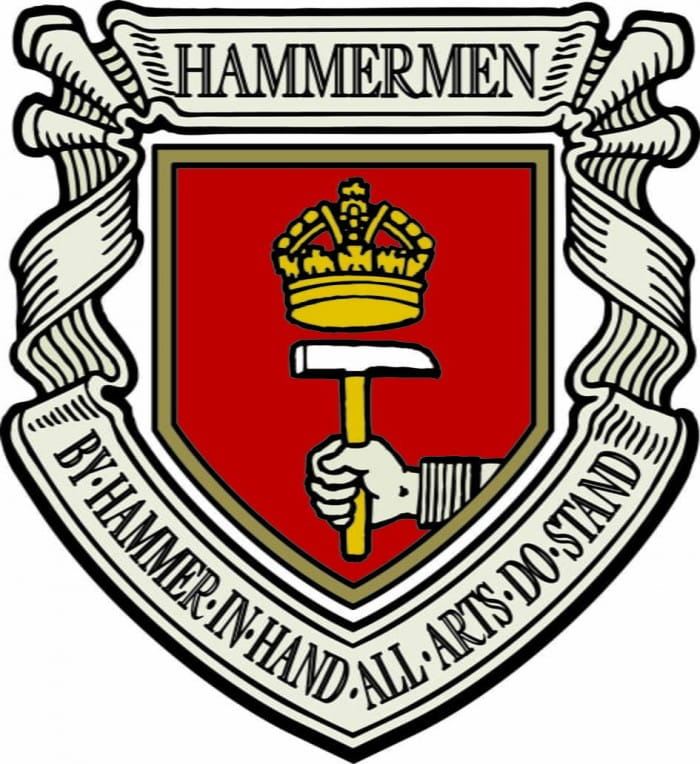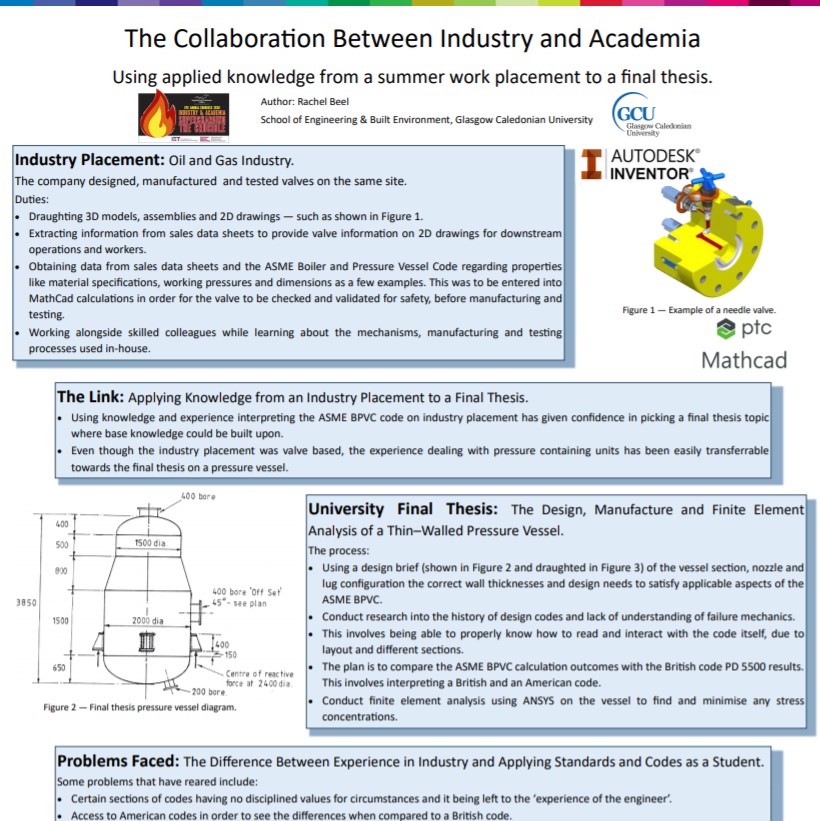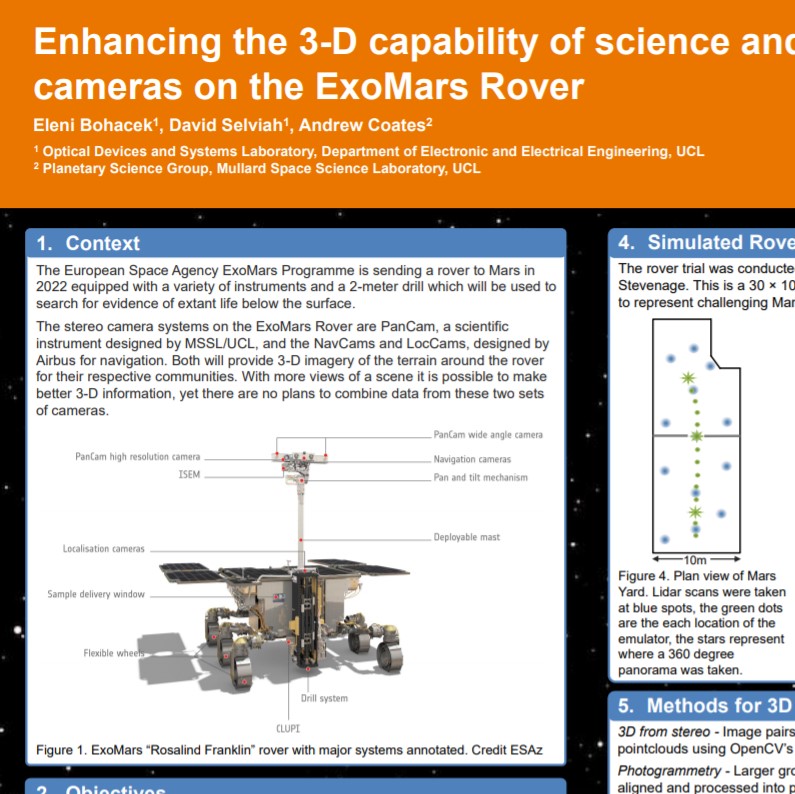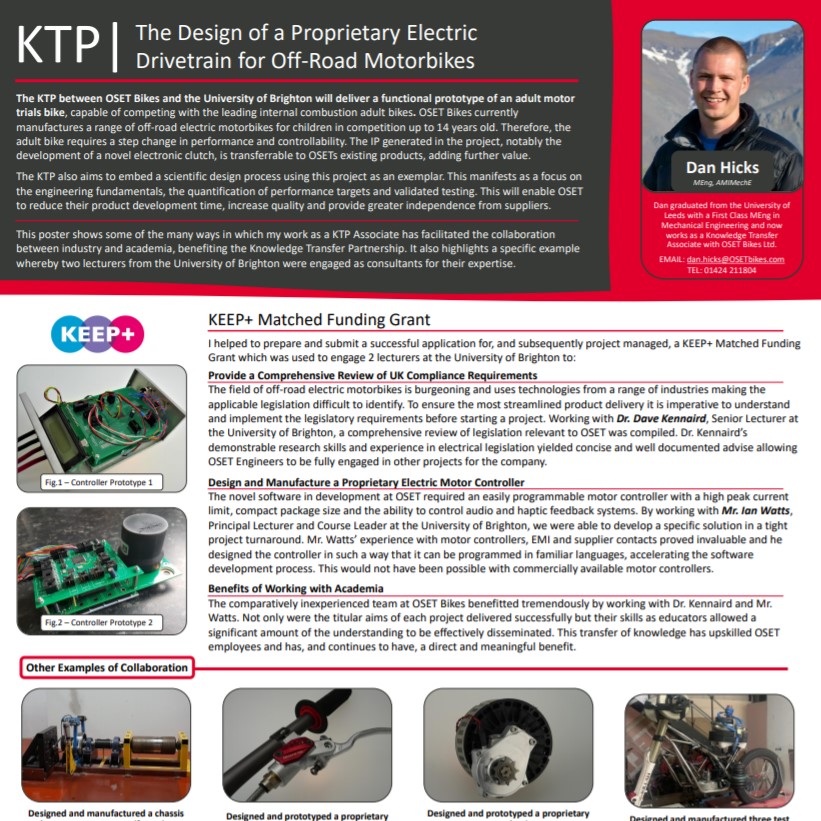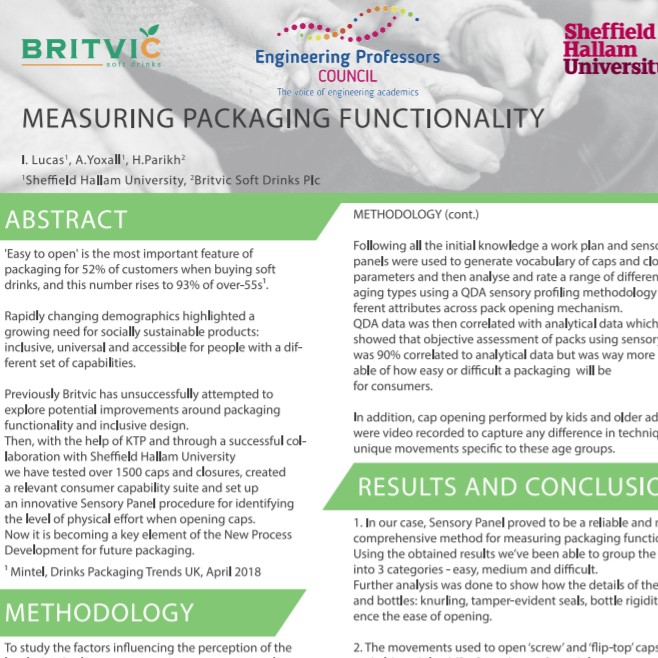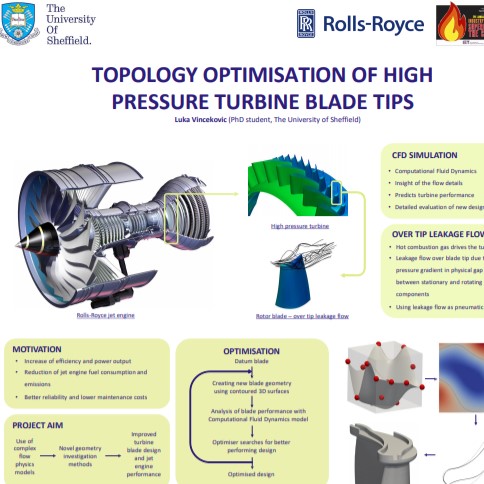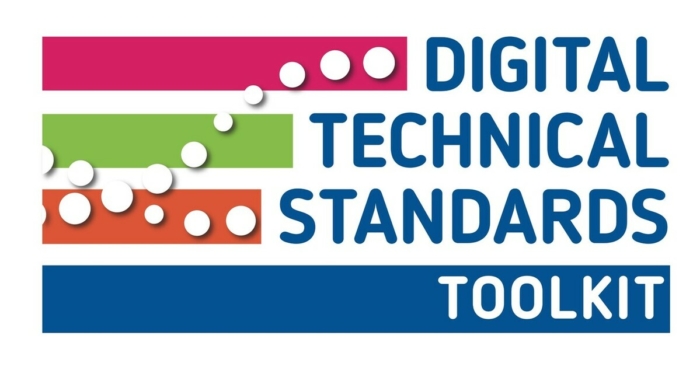The level of talent this year was outstanding! Please do take a look at the longlisted posters, finalist multimedia pitches and finalist posters all created by the students. We were delighted to showcase all the entries at Congress.
Finalist posters
Click on the thumbnails below to view the posters.
Finalist multimedia pitches
Click on the multimedia pitch you would like to view:
Longlisted posters
Christopher Dyer, Cardiff University
A joint effort between industry and academia, an appraisal of industrial applications of metal detection in materials processing is to be carried out utilising a range of methodologies, resulting in a product for the industrial partner. Techniques for signal production, acquisition and processing will be developed, with simulation and real world testing utilised to assess capability for detection sensitivity and reliability. These techniques and algorithms will then be assessed as to their suitability for implementation on an embedded device. Modelling and benchtop developments will be used to validate and benchmark techniques in terms of sensitivity, speed and noise immunity in a practical industrial application.
Mark Firth, University of Huddersfield
Smart Cell Usage in Medical Device Manufacture Ensuring, Full Traceability, Enhancing Quality Assurance, and Addressing Safety Concerns.
Brandon Medical has employed placement students from University of Huddersfield for many years, and use of smarts cells arose as a final year project. This project evolved into a two-year KTP project. The smart cell uses bespoke semi-automated hand assembly, allowing shop floor data collection with zero paperwork required. Unique device identifiers are issued by the program and a ‘birth certificate’ issued with all QC points. New test rigs have also produced ensuring zero manual handling of completed products.
Ann Greace, Jason Minter, Megan Lea, Canterbury Christ Church University
Starting engineering within CCCU, in a CDIO focused course, we worked closely with Barton Marine Ltd. Completing two projects, firstly a static, simulation and dynamic test upon k-cam-cleats used around the world, trying a new material comparing to the original. The second, designing and performing an automated testing mechanism for a tracked locking mechanism’s viability for yacht roofs using microprocessors and servos.
Barton Marine states, “I was very impressed with how quickly foundation students understood the problem and producing practical ‘real world’ solutions. For us this was not just an academic exercise but a project that produced a practical solution enabling us to improve performance of our product.”
Joe Gregory, University of Bristol
Model-Based Systems Engineering (MBSE) can promote consistency, communication, clarity and maintainability within systems engineering projects.
The implementation of MBSE, however, is challenging and many organisations struggle to overcome the cultural and technical hurdles of MBSE adoption. A repeatable process has been developed to determine where issues with the systems engineering processes of an organisation lie, and where a model-based approach may help.
In an Airbus case study, semi-structured interviews have been conducted with 25 engineers. The acquired data has been thematically analysed to extract common themes from the responses, yielding four areas that may benefit from the implementation of MBSE.
Andrew Hadfield, University Of Strathclyde
After interning at Farm Urban, a company focused on producing hyper-local, sustainable food, I have developed a collaboration with them for my Chemical Engineering Masters project. I am creating a modelling program for their hydroponic farm, generating important farm efficiency data and insight for use within their Decision Support System. As a chemical engineer I contribute a new vision to the predominantly plant biology-focussed business. I aim to make the model applicable to farms growing different crops under different conditions. Urban farms help combat climate change, food waste and unhealthy diets – this project will produce a powerful tool to help.
Harvey Kangley, The University of Huddersfield
AUS LTD Supply and manufacture a range of specialist tools, materials and components to utility, rail (electrification) and related engineering businesses. AUS identified a knowledge gap. This knowledge would enable AUS to fully develop new products for rail electrification in-house and meet customer approval requirements to commercialise the new products. Ultimately, AUS wanted to utilise their vast knowledge of ‘OLE’ and contribute to the modernisation of the UK’s railway infrastructure. A KTP(10705) was set up to develop and establish methodologies for product design, analysis and multi-criteria optimisation, and to apply the new methodologies to the design of novel products.
The poster will describe a 2-year KTP project to be completed on 31st March 2020. The collaboration between KROHNE (business) and University of Kent (academia) brings a unique opportunity for the company to use novel soft-computing algorithms to develop cost-effective two-phase flowmeters.
A commercial prototype developed from this project has confirmed the feasibility of using the algorithms to enable the company’s core product, single-phase mass flowmeters to measure two-phase flow in the oil&gas industry and Carbon Capture and Storage systems. The new product, once released, can challenge the radioactive or nuclear magnetic resonance based two-phase flowmeters which are prohibitively expensive.
Maria Robowska, Strathclyde University
Over one billion people live without a stable access to electricity and the socio-economic benefits it brings. It is predicted that off-grid, minigrid networks will bring electricity to many poor rural villages across the Global South. To facilitate this, Strathclyde University has collaborated with PowerGen Renewable Energy to develop a software-based minigrid design tool for optimising network tropology and generation sizing. Utilizing PowerGen’s on site design experience, I have led a team of students in building a tool that will greatly increase the speed in which new networks can be designed, while working to reduce final cost of the network.
Jack Trethewey, The University of Sheffield
The University of Sheffield’s SELA (Sheffield Engineering Leadership Academy) group are working with the Regather Co-Operative to investigate ways of using data to improve the sustainability of Sheffield’s food network. Currently, Regather delivers boxes of fresh, organic produce to its customers, aiming to reduce waste and negative socioeconomic impact.
SELA members are developing a smartphone application and a locker system to streamline the process. Customers’ food boxes will be delivered to a secure locker-hub. Each box will hold a widget containing previously-unavailable information about the contents, enhancing customer awareness of the repercussions of their food choices whilst improving Regather’s transparency.
Jiayi Wu, University of Sheffield
Our sewer systems are transporting increasingly high volumes of water, exacerbating issues related to pollution, sedimentation and flooding. There is therefore an increasing demand from the water industry and environmental managers for accurate and robust characterisation of turbulent flow processes. Existing non-intrusive methods can estimate surface velocity and flow depth, but measurements of turbulence-driven processes are too expensive and energy-intensive for widespread deployment. With the support from Dynamic Flow Technologies, home of “the wastewater meter”, our research aims to develop a microwave sensor which is able to remotely, cheaply and reliably assess the turbulent flow processes in drainage networks.
